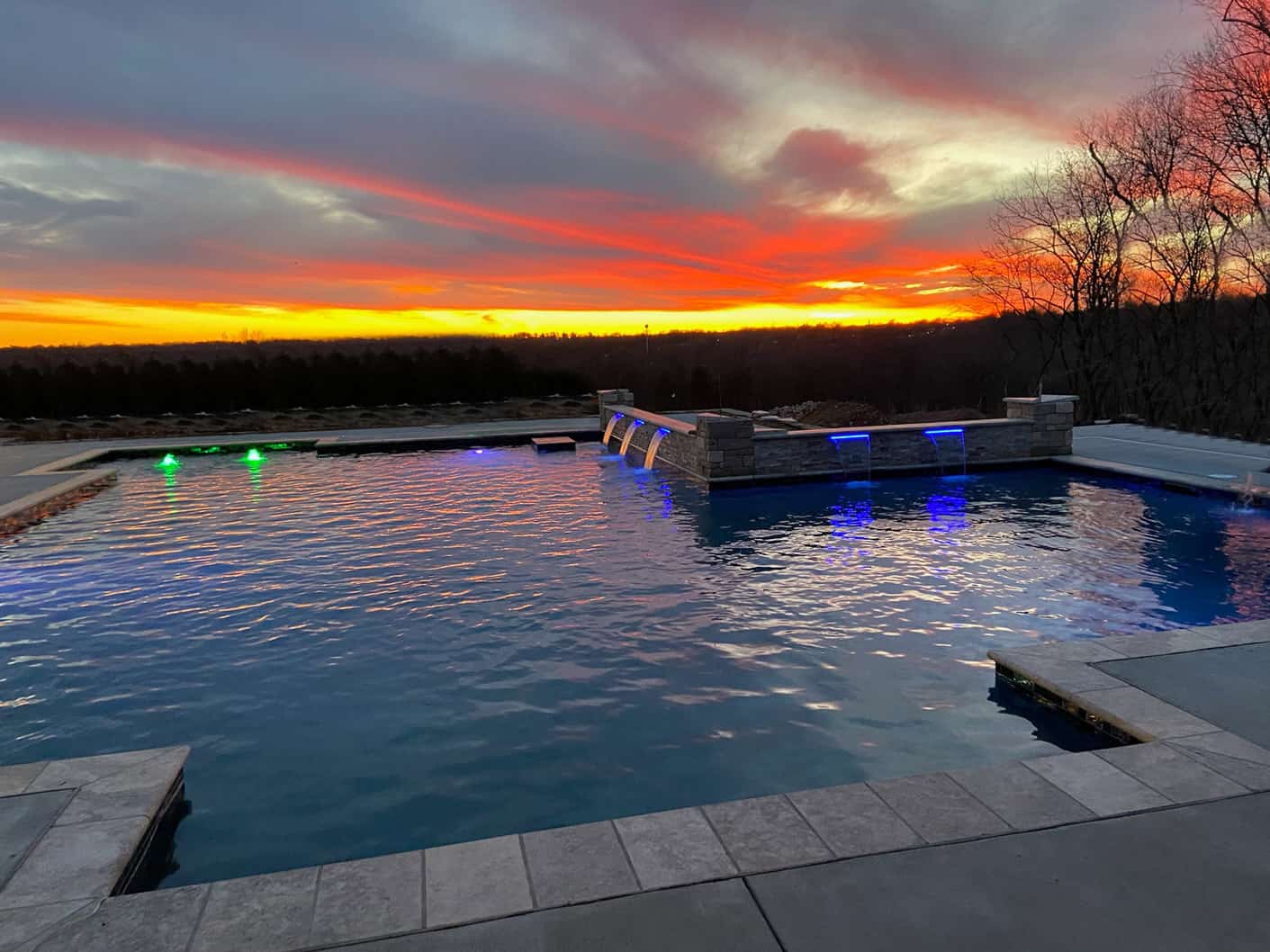As the fall days are here, it’s time for pool owners in St. Louis to start thinking about closing their pools for the winter. Properly winterizing your pool is crucial to protect it from the harsh winter elements and ensure it’s ready for use next summer. Here’s a step-by-step guide to preparing your pool for the off-season.
Importance of Proper Pool Closing
Closing your pool properly is essential to avoid costly repairs come spring. If your pool isn’t winterized correctly, freezing temperatures can damage your pool equipment and structure, leading to cracks, leaks, and broken pipes. Taking the time to close your pool the right way can save you money and hassle in the long run.
Learn more about the importance of winterizing your pool from Swim University.
Steps to Winterize a Pool
- Balance the Water Chemistry: Before closing your pool, it’s important to ensure the water is balanced. This includes adjusting the pH, alkalinity, and calcium hardness levels. Proper water chemistry will help protect your pool surfaces from staining and scaling during the winter.
- Clean the Pool: Thoroughly clean your pool by skimming debris, vacuuming the floor, and brushing down the walls. Removing all debris helps prevent algae growth and keeps your pool in top condition.
- Lower the Water Level: Reduce the water level to below the skimmer to prevent freezing and potential damage to the skimmer and plumbing.
- Add Winterizing Chemicals: Add the appropriate winterizing chemicals, such as algaecide and a pool shock treatment, to keep the water clean and clear during the off-season.
- Cover the Pool: Use a durable pool cover to protect your pool from debris and weather elements. Make sure the cover is secure to prevent anything from getting into the pool over the winter months.
For a more detailed guide on winterizing your pool, visit The Spruce.
Common Mistakes to Avoid During Pool Closing
One common mistake homeowners make is not lowering the water level enough. This can lead to frozen water causing damage to the skimmer and plumbing. Another mistake is neglecting to properly clean the pool before covering it. Any debris left in the pool over the winter can lead to staining and algae growth, making it much harder to clean in the spring.
For a comprehensive list of pool closing mistakes to avoid, check out Leslie’s Pool’s guide.
Why Pool Closing is Crucial for Fiberglass and Gunite Pools
Both fiberglass and gunite pools require proper winterization to avoid damage. For fiberglass pools, the smooth surface makes them less prone to algae, but if the water isn’t properly balanced, you can still encounter issues like staining. Gunite pools, on the other hand, can be susceptible to cracks if the water freezes, so it’s especially important to lower the water level and protect the pool structure.
Schedule Your Pool Closing
Winterizing your pool is an essential part of pool ownership in St. Louis. By following these steps, you can protect your investment and ensure your pool is ready to go when the warm weather returns. Don’t wait until it’s too late—schedule your pool closing service today!



